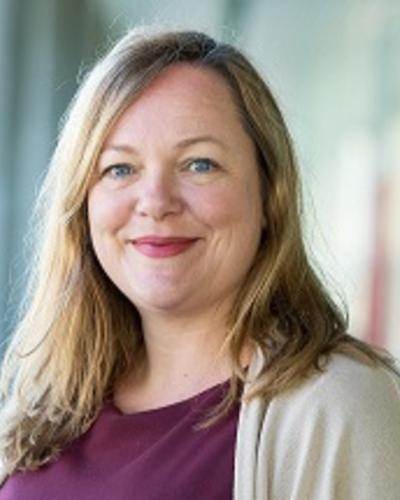Migration, trafficking and sex work
While most students at UiB have finished their exams and gone home for the summer, a new group of students are swarming the campus.

Main content
PhD candidates and young researchers from across the world have arrived to participate in Bergen Summer Research School (BSRS).
Those taking the course on gender and migration co-organized by SKOK and the Faculty of Law have been presented for Danish anthropologist Sine Plambech's work on migration, trafficking, and sex work.
Our economy is bad, so it's the money we want. We want to get that money quickly and return back to our country and do what we want to do with it. To build your house, buy a car, start up a business. So that is it: it's just the easiest way to get your money. The ones that I have seen. The ones that are in prostitution that I have seen, they are all looking beautiful when they return to Nigeria. I don't know about those who are killing themselves. They should find out what is disturbing their head. But the ones that I have seen... Oh God... If you see them, they look more sexy than ever.
The above quote is from the documentary Becky's Journey, where we are presented for Becky, a young Nigerian woman from Benin who has tried to make it to Europe to earn money as a sex worker. Becky's story challenges the traditional narrative about victims of trafficking getting abducted and smuggled into Europe against their will, or tricked into the sex-industry. At the same time, the movie shows the vulnerable position these women are in, and the dangers they face in their attempts to fulfil their dreams of a better life.
Director of Becky's Journey and anthropologist Sine Plambech has a long track record working with sex-migrants, both as a researcher and as consultant to international aid organizations. Through her work, she wishes to show the complexity and nuances in the lives of women that travel to Europe to sell sex.
"In public debates, women from Asia and Africa are generally portrayed either as victims or criminals, but these women don't percieve themselves as either of these two categories. They have often borrowed large sums of money to get to Europe, and see themselves as migrants with a big debt and a big problem. For them, prostitution is not the problem, but the solution to the problem," Plambech says to the students participating in the course on migration during BSRS.
She wants us to understand the phenomenon of trafficking in a larger context: the stream of female sex workers to Europe is to a large extent the result of a lack of development and prosperity in the home countries of the migrants. In many places, sex work is seen as a unique possibility for young women to earn significant amounts of cash in a short time, and the money is an important source of income for these women and their families through remittances. Plambech explains that there are a few regions in the world, or "hot-spots," that have developed a tradition for this kind of migration. She has carried out fieldwork in two of these areas: Edo State in Nigeria and Isaan in Thailand.
Plambech's own research supports the findings of other researchers in the field, who have argued that the borders between migration and trafficking are blurred. Usually, the women travelling are well aware of what awaits them if they are able to complete the often hazardous journey to Europe.
If you want to travel, the madam will say "I would like to talk to your mother and father. I would like your family and my family to have some meetings." So I don't see any trafficking in that, because it's an understanding between both parties. My madam even told me "Becky, I don't have any job for you in Europe. I only have prostitution for you, and you will go out and do it every day." So I don't see it as trafficking, as someone forcing you to do what you don't want to do. If you don't want to do prostitution, don't bother going to Europe. Nobody puts a gun to your hed, saying you must go to Europe and do prostitution. So it's not trafficking, it's what they both bargained for.
"Becky does not reach Europe in the movie, but there are a lot of migrants that never reach Europe. Her story illustrates the dreams and aspirations of many migrants," Plambech says, and adds:
"Even if Becky doesn't see herself as a victim of trafficking, she would probably be registered as such if she had been identified by the police in Europe."
Becky was determined to reach Italy, and after the documentary was completed, she made a new attempt at crossing the Sahara and the Mediterranean. She didn't make it beyond the border between Nigeria and Niger, where she was forced to return. On her way back to Benin she got pregnant, but the child died in her womb. The doctors at the local clinic where she was treated were not able to get the baby out of her womb. Becky died, 28 years old, in her attempt to reach Europe.
Even if Becky is not alive anymore, Plambech continues to tell her story.
"The film was important to her. She dreamed of being famous, and was also actively involved in the process of making the movie," Plambech explains.
She concludes telling us that the problem for many women is that their stories don't match the established narratives about trafficking in the West, and that they therefore often do not qualify for support from aid organizations. Hopefully, Becky's story can lead to a better understanding of the phenomenon of trafficking.
You can read more about the work of Sine Plambech at her web page and see the movie about Becky online.

